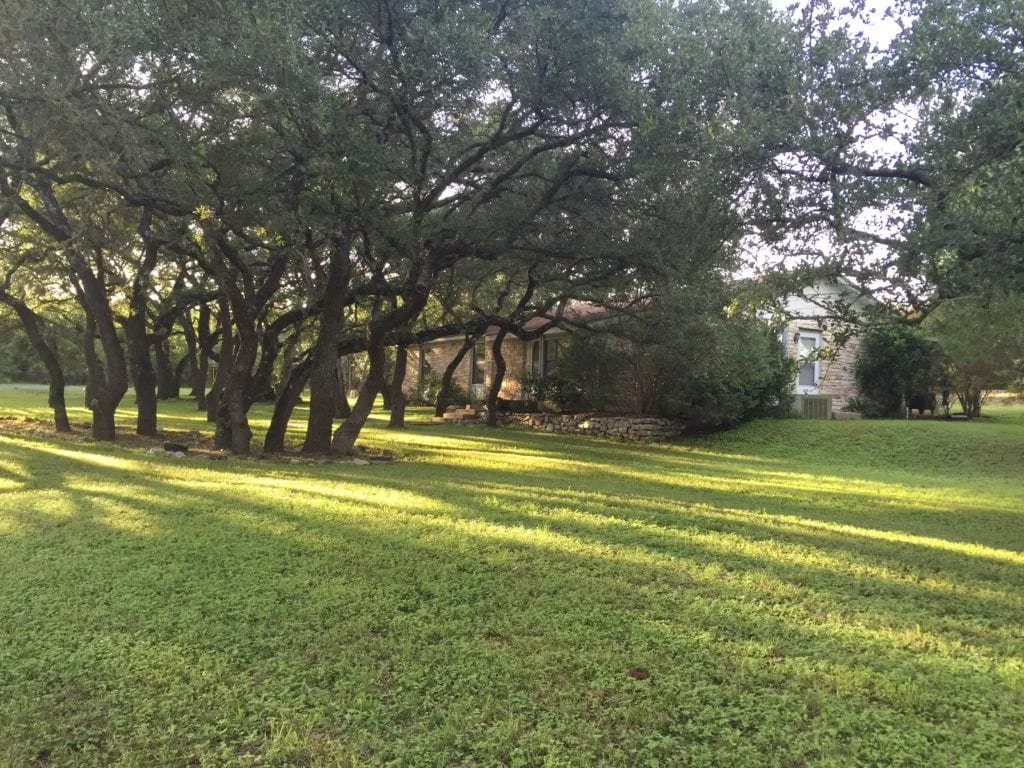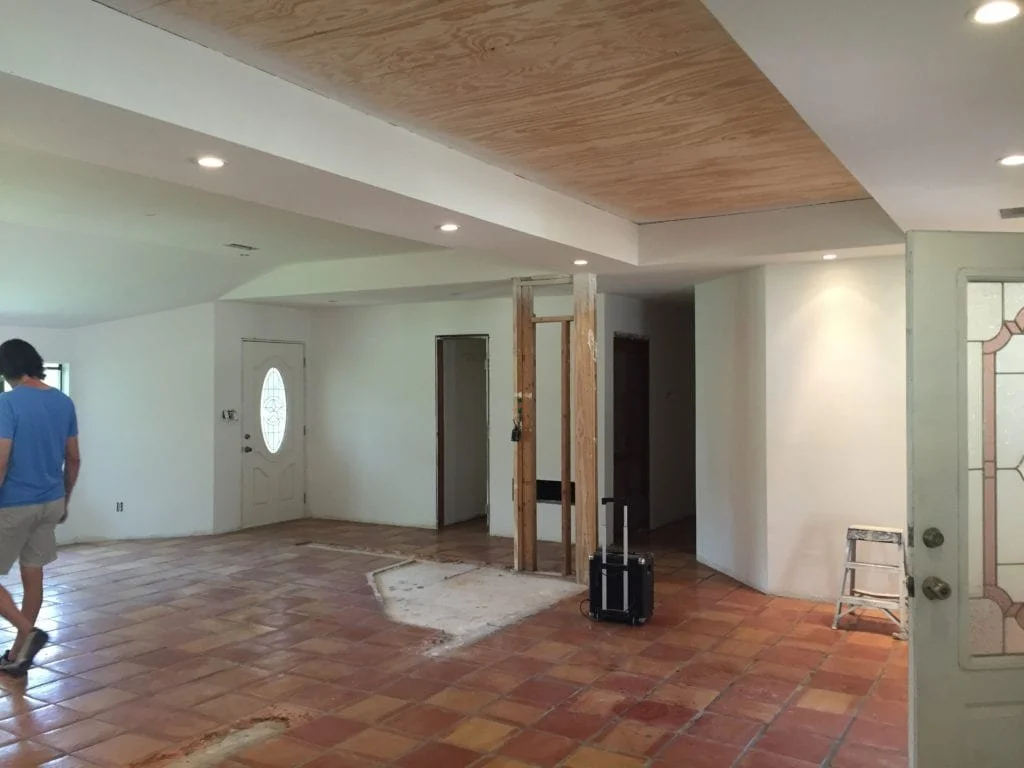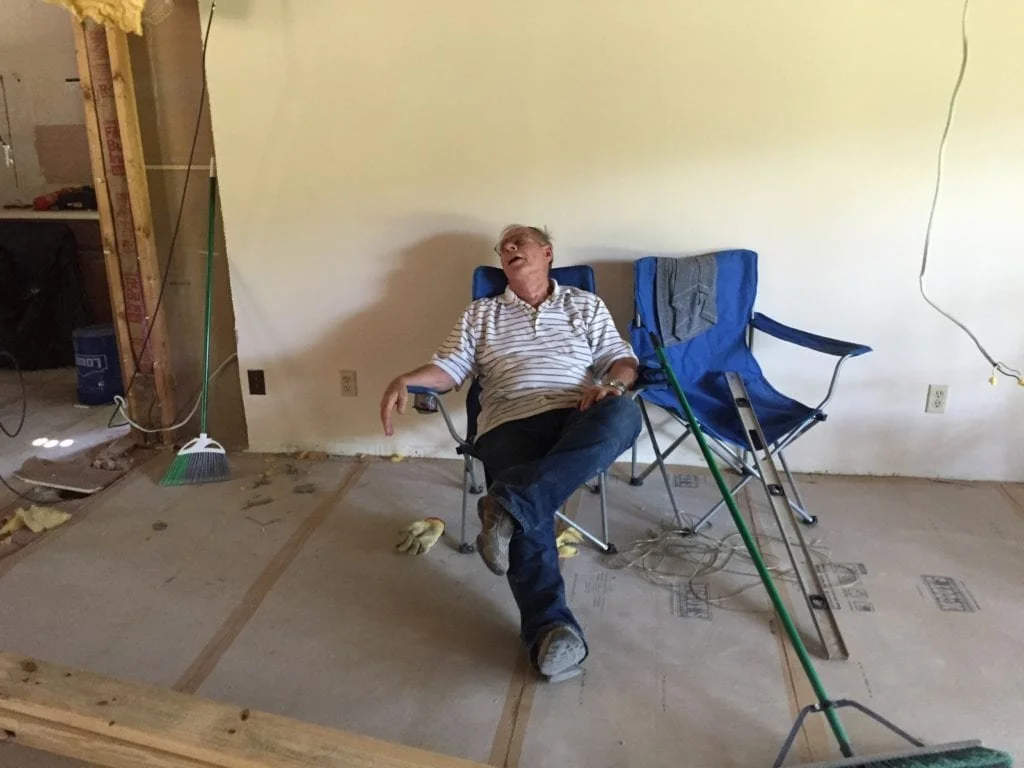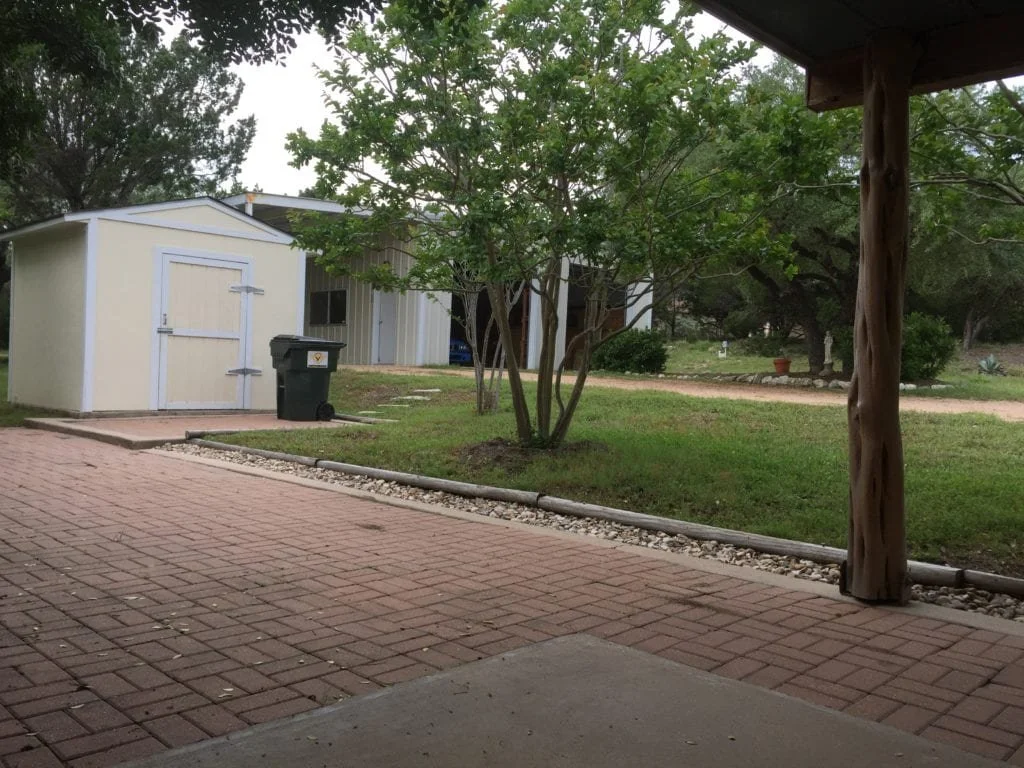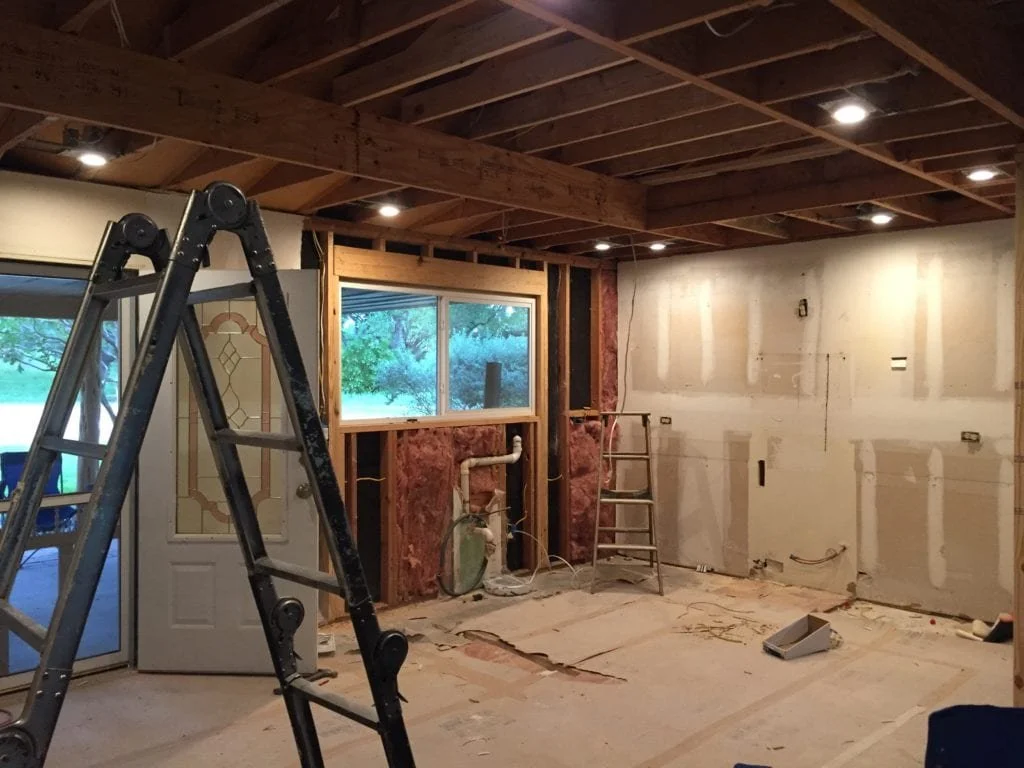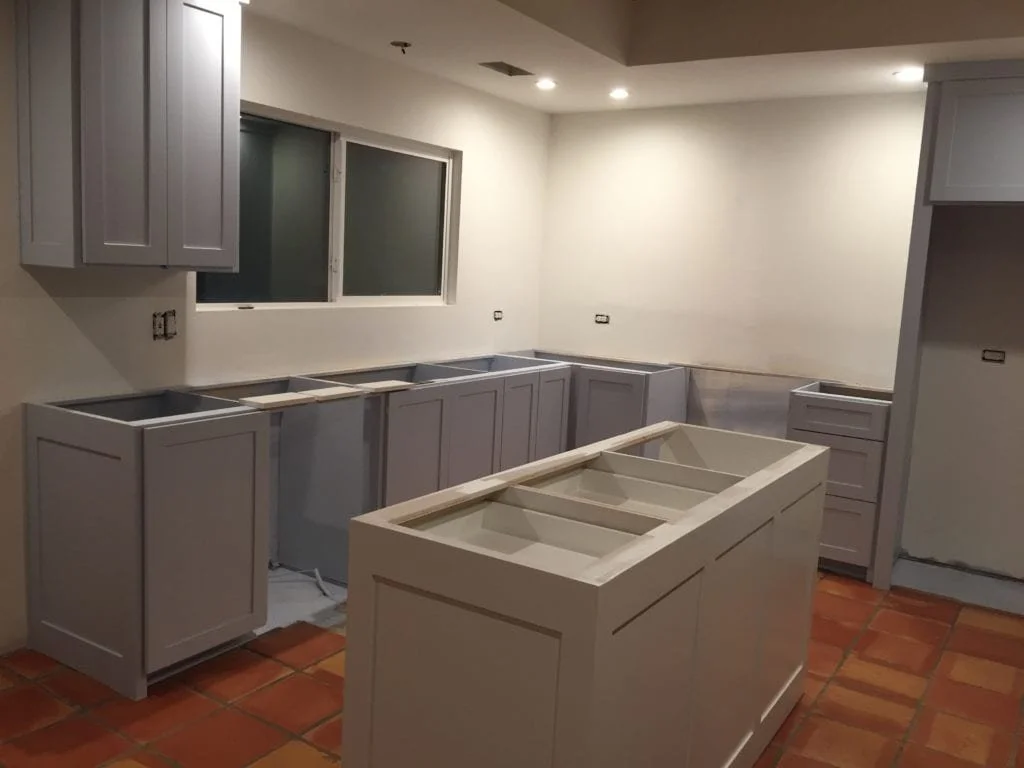The Real Cost of Buying a House
Hi, Ian here.
After a year or so of obsessing over Redfin and Realtor.com, I finally pulled the trigger and bought a house! My decision was fueled by a few things going on in my life:
Last July Dan and I sold our product design and manufacturing business. All the money that had previously been tied up in inventory was finally making it to our bank accounts. Minus taxes, of course!
I moved to Austin Texas two years ago. Since then, I have watched the average home price increase rapidly. Austin is one of the hottest US real estate markets right now. Each year I waited, my cash was buying me less property.
I was in the mood for a major lifestyle change. I didn’t want to live downtown anymore. Most of my hobbies and interests were demanding more space.
Is it a good investment?
Probably not. Even in Austin, one of the hottest real estate markets in the US, I’m have a hard time calculating more than a 3-5% annual return for the next 2-10 years, given all the costs that come along with home ownership, in the best market conditions.
But that’s not the full story. If you’re up for it, I’m going to go through the details of my process, including the numbers, below.
Unfortunately the cowboy carpet wasn’t included.
Rent vs. Own
Not worth going into too much detail here because so much has been published on the topic, and everyone seems to have their own opinions. But a major factor was knowing that I plan to use Austin as my home base for the foreseeable future. Therefore, after 20 years of renting in various cities, I decided to buy in Austin, Texas.
I have never felt weird about not owning my own space. In fact I think renting has afforded me a tremendous amount of freedom over the years. Everywhere I have rented has always felt like home to me. Whenever I had the itch to travel, move, or switch neighborhoods, I just picked up and left. I never had to worry about repairs or maintenance costs. I could calculate my monthly housing costs as fixed costs – no surprises. In general I liked renting and can see myself becoming a renter again someday.
What did I buy?
A modest 3 bedroom, 2 bathroom, 1600 sq/ft. house, built in 1985, on 2 acres in West Austin. Oh, with a sweeeeeet detached workshop :)
Didn’t think about the costs of keeping this yard so nice…ooops!
Suburbs vs Downtown vs Out of Town
I grew up in the suburbs of Washington DC. For me, the ‘burbs’ suck. Not just in DC, but Austin – and, indeed, all the suburbs I’ve ever been to. When I was looking for a place to buy in Austin I toured a few homes that were in the suburbs. I thought about it, but the idea that I was going to be subjected to the lives and opinions of 5-7 complete strangers, permanently surrounding my property, was enough to give me night terrors. Also, I remember growing-up and the types of people that lived in my neighborhood – they all had families and seemed to work a regular 9-5 schedule. Nothing wrong with that, but it’s not where I am in life right now. So, although I’m not necessarily looking to make friends with my neighbors, the chances that we would have common interests seem slim. Also, I have never seen a 5 car garage in the suburbs and, if I’m being honest, that was the final nail in the coffin for me!
Having neighbors while living downtown never bothered me. When I lived in San Diego I actually became friends with a few of them. Downtown, or at the beach, or in any tight-knit community, it feels like everyone is moving in the same direction and on a common brainwave. When your neighbor’s music is pumping at 1am downtown, you are usually pumping with them. I was reminiscing the other day with a friend about the fire pit we had wedged between two apartment buildings in San Diego. Two to three nights a week we would carry on, and have a fire, right outside the widows of at least 10 other people’s apartments. Not once did anyone complain about the smoke or noise. Tolerance is easy when you all have similar values and pastimes, I guess.
Out of town or, as it is better known, ‘the country’ or a ‘rural area’ is where I have ended up. Up until this point, I have never lived more than a few feet away from my neighbors. Now I can only see one neighbor, and I’m working up a fence design this week :)
Initially I had a lot of anxiety about leaving downtown. Would my friends visit? Where would I eat lunch? How would I feel about having to drive every time I left the house? What happens when there is a medical emergency? Hopefully that one will never need to be answered, but I had a lot of unanswered questions and still do. I also considered renting outside of town, to get a feel for it, but availability is sparse and with costs rising so rapidly in Austin I figured that, even if I decided that I hated it, I could get most of my money back.
Still playing with fire, at least not between condos.
The Cost of Downtown for Me
People wiser than me say ‘things change as you get older’. I would say, so far, they are right Some of the things that I valued at 25 are not what I value at 35. Living downtown at 25 felt awesome. I loved going out five nights a week, eating a great meal, having a few beers. I liked the convenience of walking to my favorite pizza shop, easy last-minute trips to the auto parts store 10 minutes before they close. But I started to question what I was optimizing for. If there was one thing that was optimized for, it seemed to be my social life. But that was starting to make me feel empty. Here’s what a typical Saturday looked like living downtown:
Wake up after a restless night around 10am.
Walk to brunch around noon with a hangover.
Come home around 2pm and regret the night before.
Feel better around 4, maybe go for a bike ride.
Start planning where to go out to eat around 6pm.
Eat at 8pm somewhere ‘cool’ on a date or with friends.
Rinse and repeat.
Every weekend didn’t necessarily look like this, and there were certainly plenty of days filled with work, or activities, that didn’t involve drinking beer. But it was very easy to fill my days downtown staying ‘busy’ but never accomplishing much more than picking a new restaurant. I was starting to feel like downtown living was becoming a distraction, pulling me away from the things I really wanted to be doing: riding my dirtbikes more, working on meaningful projects, learning new skills. Not everyone lacks the self control I seem to be describing, and I know a few productive people accomplishing their goals while living downtown. So maybe it’s just me.
It’s also worth noting that not all cities make me feel this way. I just recently spent 2 months living in downtown Barcelona with Dan, where I occasionally woke up with a headache :0 but was also able to walk to the beach, go on epic bike rides and visit some amazing historical sites. If I’m going to live downtown in the future, it’s going to be in a world-class city like Barcelona or New York. Austin does a lot of things right, but the downtown area isn’t my favorite. There’s no public transportation and the traffic is becoming intolerable. In general, most of what I have found US cities to be centered around, including Austin, is the bar and restaurant scene. And, at 35, I have had enough of that for now.
Making progress. With any luck there will be a fireplace again before winter.
How Much Did I spend?
$355,000. The asking price was $385,000. In Austin, where houses are typically on the market for less than 45 days and often receive bids above the asking price, everyone was very surprised when my offer was accepted. My friend recently listed a condo in downtown that was sold by noon the same day.
Why did I offer below the asking price?
Because I had nothing to lose. I didn’t need to buy a house. A friend with multiple real estate investments told me two things to remember during the process. #1 It’s not a done deal til’ ink is on the paper and #2 Don’t get emotionally involved. That resonated with me after years of doing business, the principals are similar. But keeping your emotions at bay when buying a house is probably a little harder for most people. They say things like ‘at 35 we shouldn’t renting anymore’ and, without pulling out a 30 year mortgage calculator, ‘the monthly payments are less than we are paying in rent’.
Also, in the US – and I feel qualified having lived here most of my life to say this – there comes an age when you are labeled ‘a loser’ if you don’t own your home. Certainly, if you are above 60 and have to sell your house to afford retirement, or are still renting, you are a ‘failure’. In my view, these stigmas can be damaging, especially if you are trying to start a business. I believe it only makes sense to buy a house, or apartment, as your primary residence if you are able to do so without impacting the decisions you make in your business. Basically I would not have made the decision to buy if, in any way, it would have hamstrung the profitability or trajectory of my business. Why? Because there is so much more potential upside in my business than there is in my personal US real estate investment.
My realtor told me that he would put in the offer, but that it was offensive. He also intimated that, if this was going to be my approach going forward, I was wasting his time. He was surprised when the seller accepted my offer.
Hired help not always helping.
It’s Not Over Til’ Ink is On The Paper
It wasn’t necessarily luck that they accepted my offer. I had done my homework – I was online comparing home prices for sometimes hours a week for the last 18 months, maybe more than my realtor. The house was in need of some TLC, and the owner had previously listed and delisted it at a higher price. I figured out the owner’s name through tax records. I stalked him on Facebook and social media. He wanted to leave Austin and he had a new family. I didn’t necessarily know that he would accept the offer but I felt like the profile was right.
I had never bought a home before, so the process was completely new to me, but there were some parts that were similar to buying a business. There is a portion of time, after the seller accepts your offer, where you get to conduct due diligence, much like signing an LOI when buying a business. During this time you get to hire all kinds of professionals to inspect the property, survey the land, and tell you what, if anything, needs attention and may, therefore, require money. At which time you can negotiate the price down even further. This period is usually less than 30 days and you are ‘locked in’, meaning that the owner can not entertain other offers until you pass on the sale or the timeframe expires. For me, I did find a few issues, but nothing I wanted to negotiate for given I was already getting 30k off the asking price. During this time most people will also be in the final stages with their lender and, for me, this was the most difficult part of the process.
You took out a loan to buy a house?!
Yes. I have never taken out a loan before, except from my parents to buy a used 1998 Mustang GT. It was a horrible investment. But the reason I had to get a loan from casa-de-parents back then was because nobody would find me credit worthy at 21, and it felt like I ‘needed’ this reliable automobile to get me to work everyday. To my surprise I found myself, at 35, just as uncredit worthy as I was at 21. (At least I’m over wanting some of the worst generation of Mustangs). But, this time, it didn’t make sense to me. I had a successful business which I had just exited from. I also had the better part of 15 years making ‘on-time’ credit card payments with a steady income.
I went to 3 major banks and was declined by all of them. And, at one, I even had in my account an amount over the purchase price of the home, in cash. I was shocked when they rejected me. They said that, because I didn’t have a job and or steady income, I wasn’t qualified for a home loan. All the banks wanted to see salary or w2 income. And, although I technically qualified before we sold the business on my w2 income, they could not accept distributions, one-time payments, cash on hand or loan repayments as acceptable income secure enough to back the loan. They all told me that, as soon as I was paying myself a salary again, to come back with 2 years of accounts as proof.
A quick side note about why the US housing market could be screwed again.
I have a few friends that are not business owners but have also recently bought houses. They are all living paycheck-to-paycheck, with less than 10k in their savings accounts. They all work jobs that I assume will be replaced with software in the next 5-10 years, or before their mortgages are paid off at least. These people, in my mind, are not qualified to take on such a large financial risk given their limited skillsets and abilities to adapt to changing market conditions. From what I understand, there are no trigger points in the US mortgage system to guard against people who will lose their jobs to automation or software in the future. This, to me, is a major blind spot – those who are qualified today may not be qualified tomorrow, especially if they are not in the driver’s seat of their own career or business.
Private Mortgage Insurance (PMI) is another example of how the industry is lending to unqualified buyers. Originally legal and then made illegal after the housing bubble of the 1930’s great depression — it’s back! In the 1950’s, when private lending started to take off again, PMI was re-introduced and today it’s commonplace. It’s insurance that allows you to purchase a home, even if you can’t afford to put down the minimum 20% of the purchase price. If you can’t even make the first payment, a down payment, conventional wisdom might say your financial position is too fragile for you to make consistent future payments. But, in a country where our central bank (The Fed) is using the term ‘irrational exuberance‘, anything is possible!
Despite being ‘out of work’, and unemployed, I finally managed to find a small bank in Texas that was willing to understand my position. They took the time to listen to me. Here’s how it went down:
I talked with senior banking managers, their board voted on my loan and I was accepted with a 50% down payment at 4.875% percent interest rate for five years. This is about 1-1.5 points higher than my friends with jobs were able to secure. The bank in Texas is keeping my loan in-house, meaning they will not sell it on to another bank (a lot of loans are initiated at one bank and then sold on to another). My rate is locked in for five years. After that, they can increase my interest rate by no more than 2% percent per year up to 10%, but I don’t plan to keep the loan that long.
Dat shop. Car parts and tool hoarding full speed ahead.
Why did I take a loan?
Although I could have paid cash for my house, I decided to take a loan out for one simple reason: I wanted optionality, or the ability to use a portion of the cash to make other investments. Each year I keep the loan open it costs me about 10k per year. I felt like this was a number that I could live with to give me the option of making a better return with that $177,500, outside of the house. So far I haven’t found anything I want to invest in with that money, but Dan and I are cooking something up :) It was really hard for me to think about paying interest on something, especially since I have never had a loan and definitely not one for this much money. But I’m warming up to the idea that debt, in some instances, makes financial sense. I will evaluate this loan every 12 months to see if the money is outperforming the loan interest.
Did it really only cost $355,000?
No. And this is important. There are a LOT of costs involved with buying a home and home ownership. Not to mention the major renovations I’m having to do. After all, my house was built in 1985 and part of my strategy is to try increase the value of the home in 2-10 years. I have begun to document all of the costs associated with buying a place, and I also started a spreadsheet where I throw in all my receipts and contractor costs. Although I’m trying to hire people as little as possible, and learn new skills, there are some jobs I just don’t enjoy, or the learning curve is too steep for the time I have to complete the task.
One such task has been engineering a raised living room ceiling. Renovations aside, I was surprised that the closing costs added up to a little less than $10k. These expenses were: pre-paying insurance, taxes, surveys and related costs during the due-diligence period, also a charge for opening the loan. This is cash I had to come up with outside of my down-payment. Luckily, when you are the buyer, you don’t pay either the buyer’s or the seller’s realtors – but when you sell you pay both of them. In Texas that’s 6%. Something to consider when estimating how much money you will make, or lose, on your home purchase.
What have I done? No construction experience, no problem.
Is it a good investment?
Probably not. Even in Austin, one of the hottest real estate markets in the US, I’m have a hard time calculating more than a 3-5% annual return for the next 2-10 years, given all the costs that come along with home ownership, in the best market conditions.
To put this into perspective: in 1992 my house sold, for just over $90,000, to the previous owner. Let’s say that the previous owner also put down 50% or $45,000. In 1992 the average mortgage interest rate was around 8%. So, over 30 years, they would have paid about $73k in interest, 33k in taxes, 20k in insurance, 25k for the shop, and 20k (very conservatively) in maintenance. That adds up to $261,000. Now before you panic, yes I’m sure they refinanced their loan at a better rate, but there is still a massive chunk of change going to the mortgage company. When they sold the house to me for $355,000 they had to pay the 6% due to the realtors, so take out 21k. This means that they made about $73,000 in 24 years, or 1-2% annual return.
That money in the stock market, from 1992 to 2016, would have grown about 9% on average per year.
You could have bought a Ferrari F40 for about $400k in 1992 and sold it for $1.6M in 2016 at a 6% yearly gain.
Last year, before we sold our business, we were chugging along at a 20% return on investment per year.
In the context of a business, and other financial instruments, it’s alarming on paper how bad an investment a house can be. For some, this ‘investment’ is the main reason they will spend 8 hours a day, 5 days a week, working for the next 30 years. For me, this is 100% unacceptable.
So, when I thought about this purchase, I decided that I would not put myself in a position to buy a house if I thought there was a chance that I would lose the freedom of movement, and also the ability, to grow and start businesses. The transparency of the US real estate market (on a small, individual scale), to me, is a signal that its value will always be out performed by larger financial instruments such as a small businesses.
Stay Tuned
I hope to keep everyone updated on my renovations and costs. So far, I’ve totally remodeled the living room and kitchen, along with updating most of the electrical systems. There is still a lot of finishing work to be done, but I’m happy with the progress to date and grateful to have a few helping hands in Austin. I plan to share all of my expenses and spreadsheets as well as progress photos, along the way. My goal is to show the true costs of home ownership.
Everyone except me hates the blue. I hate the idea of having to repaint them.
Do you invest in real estate? Got questions about this article? Would love to hear from you in the comments.
Cheers,
Ian



